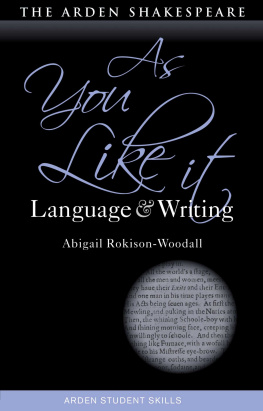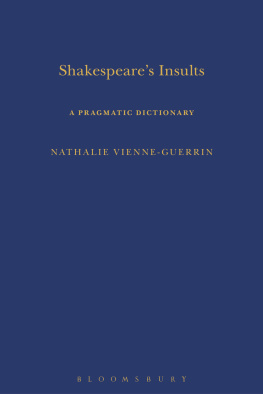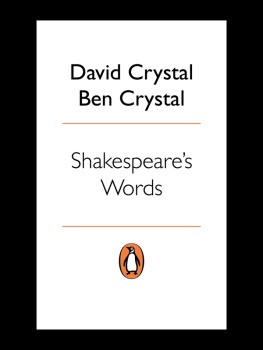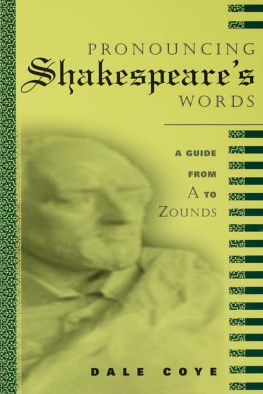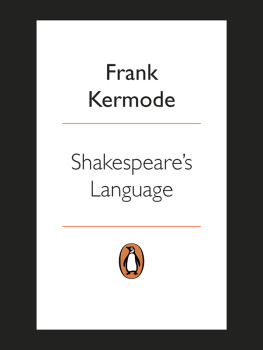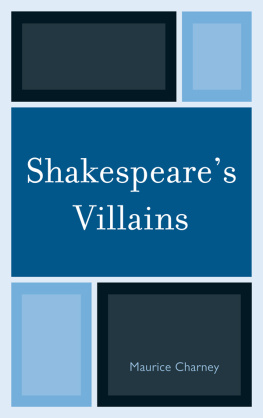Contents
Guide
Page List
Oxford Shakespeare Topics
Shakespeare and the Arts of Language
OXFORD SHAKESPEARE TOPICS
Published and Forthcoming Titles Include:
David Bevington, Shakespeare and Biography
Lawrence Danson, Shakespeares Dramatic Genres
Janette Dillon, Shakespeare and the Staging of English History
Paul Edmondson and Stanley Wells, Shakespeares Sonnets
Gabriel Egan, Shakespeare and Marx
Andrew Gurr and Mariko Ichikawa, Staging in Shakespeares Theatres
Jonathan Gil Harris, Shakespeare and Literary Theory
John Jowett, Shakespeare and Text
Douglas Lanier, Shakespeare and Modern Popular Culture
Ania Loomba, Shakespeare, Race, and Colonialism
Raphael Lyne, Shakespeares Late Work
Russ McDonald, Shakespeare and the Arts of Language
Steven Marx, Shakespeare and the Bible
Robert S. Miola, Shakespeares Reading
Phyllis Rackin, Shakespeare and Women
Catherine Richardson, Shakespeare and Material Culture
Bruce R. Smith, Shakespeare and Masculinity
Zdenk Stbrn, Shakespeare and Eastern Europe
Michael Taylor, Shakespeare Criticism in the Twentieth Century
Alden T. Vaughan and Virginia Mason Vaughan, Shakespeare in America
Stanley Wells, ed., Shakespeare in the Theatre: An Anthology of Criticism
Martin Wiggins, Shakespeare and the Drama of his Time
Oxford Shakespeare Topics
GENERAL EDITORS! PETER HOLLAND AND STANLEY WELLS
Shakespeare and the Arts of Language
RUSS MCDONALD


Great Clarendon Street, Oxford ox2 6DP
Oxford University Press is a department of the University of Oxford.
It furthers the Universitys objective of excellence in research, scholarship, and education by publishing worldwide in Oxford New York
Auckland Cape Town Dar es Salaam Hong Kong Karachi
Kuala Lumpur Madrid Melbourne Mexico City Nairobi
New Delhi Shanghai Taipei Toronto
With offices in
Argentina Austria Brazil Chile Czech Republic France Greece
Guatemala Hungary Italy Japan Poland Portugal Singapore
South Korea Switzerland Thailand Turkey Ukraine Vietnam
Oxford is a registered trade mark of Oxford University Press in the UK and certain other countries
Published in the United States
by Oxford University Press Inc., New York
Russ McDonald 2001
The moral rights of the author have been asserted
Database right Oxford University Press (maker)
First published
2001 Reissued 2012
All rights reserved. No part of this publication may be reproduced, stored in a retrieval system, or transmitted, in any form or by any means, without the prior permission in writing of Oxford University Press, or as expressly permitted by law, or under terms agreed with the appropriate reprographics rights organizations. Enquiries concerning reproduction outside the scope of the above should be sent to the Rights Department, Oxford University Press, at the address above
You must not circulate this book in any other binding or cover and you must impose the same condition on any acquirer
British Library Cataloguing in Publication Data
Data available
Library of Congress Cataloging in Publication Data
McDonald, Russ, 1949
Shakespeare and the arts of language / Russ McDonald,
p. cm.(Oxford Shakespeare topics)
Includes bibliographical references and index.
1. Shakespeare, William, 15641616Language. 2. Shakespeare, William,
15641616Technique. 3. Shakespeare, William, 15641616Literary style.
4. English languageEarly modern, 15001700Style. 5. English languageEarly
modern, 15001700Rhetoric. I. Title. II. Series.
PR3069.L3 M38 2001 822.33dc21 00062406
ISBN 978-0-19-871171-1
1 3 5 7 9 10 8 6 4 2
Typeset by Kolam Information Services Pvt. Ltd, Pondicherry, India
Printed in Great Britain
on acid-free paper by Biddles Ltd, Guildford and Kings Lynn
Many people have assisted in the preparation of this book, but two have been especially generous. Stanley Wells and Peter Holland, although they must be as busy as anyone in the Anglo-American academy, have never been too busy to read drafts of chapters (and to read them rigorously and sympathetically), to answer queries about historical or bibliographical puzzles, to suggest additional (and usually superior) examples, to offer advice about organization and pitch, to rescue an author from embarrassing errors and they have performed all these labours promptly and cheerfully. As general editors of the Oxford Shakespeare Topics series, they have been exemplary in making their supervisory presence both inspiring and reassuring.
For answers to questions, general advice, critical inspiration, and good-humored support, thanks to Denise Baker, Thomas Berger, A. R. Braunmuller, Christopher Hodgkins, James Longenbach, Catherine Loomis, and George Walton Williams. Stephen Booth and George T. Wright have not only written brilliantly on the topic of Shakespeares language but have also been magnanimous to me in ways that frustrate attempts at acknowledgement. I am grateful to Hugh Parker for help with the Latin. Maggie DiVito did an expert job of helping me proofread; the errors that remain are my fault. Frances Whistler at Oxford University Press is such a scrupulous editor that she will probably object to my expression of gratitude: she has been unfailingly attentive, encouraging, and accommodating.
Many chapters have been improved by the responses of various audiences and readers. At meetings of the Shakespeare Association of America, members of Maurice Hunts seminar (1998) and Ann Baynes Coiros seminar (2000) offered useful advice, as did readers in John Drakakiss seminar at the International Shakespeare Conference in Stratford-upon-Avon (August 2000). I thank Janet Field-Pickering, Margaret Maurer, and Robert Watson for allowing me to present some of this material to students and colleagues at the Folger Shakespeare Librarys Teaching Shakespeare Institute; Kate Levin at the Brooklyn Academy of Music and the City University of New York; Fran Teague at the University of Georgia; Russell Peck and Mervyn Willis at the University of Rochester. Staff members at several libraries have been helpful: the British Library; the Folger Shakespeare Library, especially Betsy Walsh; the Jackson Library at the University of North Carolina at Greensboro, especially Nancy Fogarty and Mark Schumacher; and the Perkins Library at Duke University.
I wish to thank my wife and son for their patience and good will: as usual, Gail McDonald has put aside her own work to read, discuss, and improve mine. Although this book comes with no formal dedication, I wish to express my gratitude to my mother, who purchased a copy of Reading with Phonics in 1954 and with it taught me to take pleasure in words.
Contents
. (a) and (b). The title page and first page of Robert Cawdreys
A Table Alphabetical (1604)
Reproduced by permission of The Bodleian Library, University of Oxford. Shelfmark Mal.745(2)
. A page from Henry Peachams Garden of Eloquence (1577)
Reproduced by permission of The Bodleian Library, University of Oxford. Shelfmark Arch. Ae.61
Reproduced by permission of The Britsh Library. Shelfmark L.23.C.2



